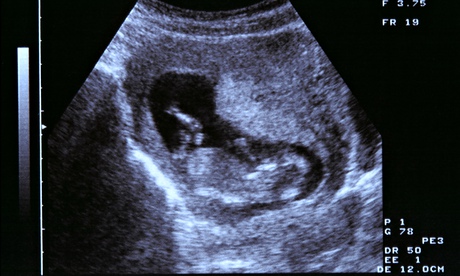One in five pregnancies are thought to end in a miscarriage, yet though it is commonplace, such a loss can be emotionally paralysing. Many women and men feel reluctant to talk about what is often a distressing and bewildering – but far from rare – experience.
After I wrote an article for the Guardian about a miscarriage I had in 2013 I was shocked at the scale of the response. “Everyone wants to talk about, but no one wants to be the one to bring it up,” one woman told me.
The Miscarriage Association is calling for a national conversation about baby loss in the run-up to International Baby Loss Awareness Day on 15 October. Backed by several leading charities, a week of events are planned starting from Thursday for those affected by miscarriage and stillbirth.
Ruth Bender-Atik, head of the Miscarriage Association, says such events can be “especially important for those who have no other markers of these tiny lives”.
After my article was published, many people commented online and told me their stories in person for months afterwards. Often people shared details they had never told anyone before.
“I kept it in a drawer wrapped in tissues,” one woman told me. She miscarried after 10 weeks, a pregnancy that was followed by years of IVF treatment. She had never spoken of it before, but the anniversary of this loss left her stricken, unable to leave the house for the weekend until recently, six years later.
Lisa has had five miscarriages, and is now the mother of a three-year-old boy. She feels angry at what she feels is insensitive medical language used by NHS staff at various times during treatment for her miscarriages. “I felt like a chicken laying eggs – as if I was silly to worry as another one will be along in a minute.”
Like many of the women, Lisa felt she had no right to mourn or dwell on something that had happened so early in a pregnancy.
Another woman spoke of her distress at having a first trimester miscarriage while visiting a particular town. She cannot return to certain cafes because that is where she used the toilets, and the memories horrify her.
So many stories reflect the intangible nature of grieving for an early miscarriage. The wanted child that never was, who leaves behind such an enormous void of missed plans.
In a world where it is unremarkable for men to bawl after losing a football match, a Facebook feed can mourn a deceased pet, and sobbing seems a prerequisite for a successful television show, how is it this issue is still taboo for most of us?
There are some high profile exceptions. Jay-Z dealt with Beyoncé’s miscarriage in the song Glory, while Ed Sheeran’s Small Bump deals with the aftermath of a miscarriage. Disney’s Up tackles the issue wordlessly, while artist Frida Kahlo’s pain is clear for all to see in Henry Ford hospital.
Yet George Bush shocked the US public when he recalled in his 2010 memoir how his mother miscarried and he travelled with her to the hospital afterwards, the foetus in a jar.
The Miscarriage Association says “there should be no shoulds”: if you don’t feel like dwelling on the loss of something that, in the case of early pregnancy loss, could not have survived outside your body that is of course fine. But for many, including me, the logic and the emotion did not run in parallel. I needed to find a way to make sense of it. In order to move beyond what is for some people a paralysing event, marking the grief can help.
A new quality standard from Nice aims to improve the care of women who have a miscarriage or ectopic pregnancy in early pregnancy. The guidelines call for women be scanned within 24 hours when a miscarriage is suspected, while a Mumsnet campaign has pushed for a higher standard of care across all NHS trusts, after its survey found that the treatment and support women received after a miscarriage often failed to meet the official national guidelines.
The NHS website gives comprehensive advice for women going through a miscarriage, including what they are entitled to in terms of treatment, and gives support regarding any ceremony or burial.
But often those who are experiencing miscarriage for the first time are not aware of the options. With an early pregnancy loss, often there is just nothing to bury. Many women miscarry on the toilet and are in shock.
Perhaps it doesn’t matter exactly what you do, but a piece of time in rushed lives set aside to acknowledge a life missed can be the beginning of the road to acceptance.











